The 22nd of November 2017 was a beautiful sunny day, and I was in a coastal village called Bulutui in North Minahasa, northern Sulawesi, Indonesia. As I was walking, I saw a fisher carrying two buckets of octopus. We were heading in the same direction, and I suddenly recognised him as the Head of the village, Asuari Sahari. He arrived at his house, built on stilts over the sea, and started weighing the octopus, throwing me a big smile when he saw me watching.
I suddenly remembered what I’d heard from our Indonesian partner organisation – Perkumpulan Yapeka – before coming to Bulutui:
It will be a challenge to work with this community. They are well-known as having been the least environmentally-friendly fishers over the last decade. However, if we succeed in working with them, we would surely be able to work with any other communities in the region.”
I had received a very warm welcome from the community so far, and I was eagerly awaiting the community meeting that had been arranged in order to discuss the octopus fishery.
Bulutui was originally a Bajo community, the former seafaring nomads of the Coral Triangle. They are highly dependent on the ocean for both their protein and their income, in fact, fishing is the primary livelihood of 95% of the men in the village. Despite their cultural ties to the ocean, and their dependence on its resources, this community has been notorious across the region for their use of destructive fishing practices.
It is this challenge that originally brought Perkumpulan Yapeka to Bulutui in August 2017. They have been supporting locally led marine management efforts in 11 other villages in the North Minahasa area since 2012.
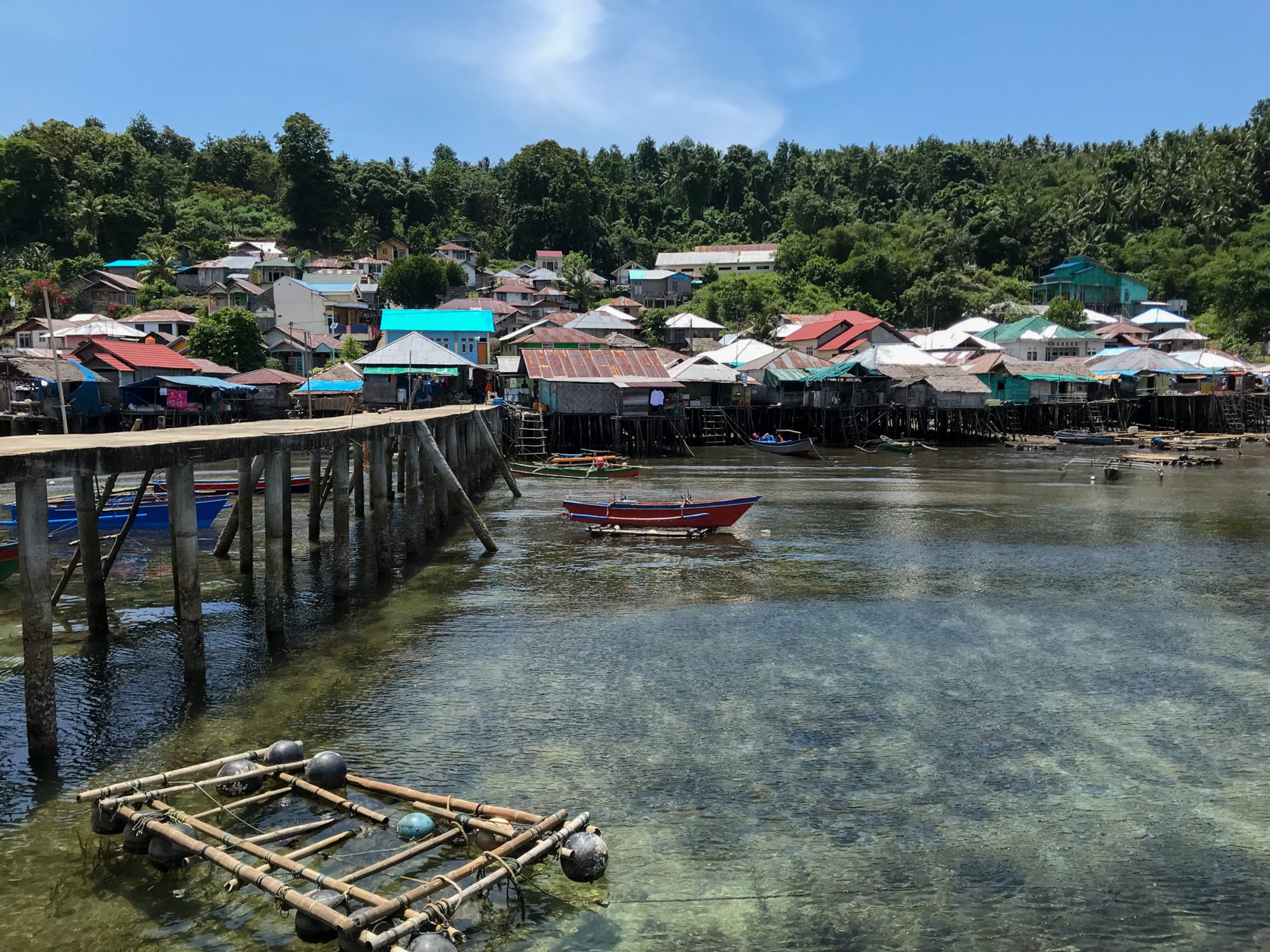
A sunny day in Bulutui village | Photo: Lugas Hakim
Since June 2017, Perkumpulan Yapeka and Blue Ventures have been working together, sharing ideas and approaches to community-based octopus fisheries monitoring and management. My role is to provide technical support to Perkumpulan Yapeka and our other partners, in particular with community-based and sustainable octopus fishery management.
My excitement about the community meeting grew even greater as I saw how enthusiastic the Bulutui community was to discuss their octopus fishery. When the evening finally arrived, we all sat in the school classroom, above the main road in the village. The air was heavy with clove cigarette smoke, and coffee and snacks were passed around. Not just octopus fishers were present, but women too and also representatives from the village government.
The meeting began with discussion about the history of the Bulutui octopus fishery, its potential, and also how important it is for the community. It excited me to see many different perspectives emerge from community members, and to see how engaged everyone was in the topic.
Asuari Sahari, the head of Bulutui village, made a very interesting remark that highlighted the problems that the Bulutui community are currently facing:
Back in time, a fisher could catch more than 20 octopus in one trip, with the average weight of each octopus at more than two kilograms, and sometimes even up to five kilograms. Nowadays, the size of octopus caught is smaller, and it is also challenging to catch as many octopus as before.”
His words triggered a new discussion on how to provide the octopus with more time and space to grow and reproduce without any human disturbance. From our experiences, we know that octopus growth is relatively quick, and coastal communities elsewhere in the Indian Ocean have benefited from increased income following periods of temporary fishery closure.
The meeting ended with the community strongly concluding that better octopus catches would follow if they gave the octopus more time and habitat to grow, as well as banning destructive fishing practices. It filled my heart with joy that this community-led discussion had ended with the decision to protect their marine resources.
Perkumpulan Yapeka agreed to support the Bulutui community in their decision by helping them establish a catch monitoring system – the first step to better understanding their octopus fishery and the problems affecting it.
The end of 2017 was spent collecting information on octopus fishing activities and the trade system used by the octopus buyers in order to design the new catch monitoring programme. By January 2018, we had designed the monitoring method, collected feedback from the community, and also trained two of the octopus buyers in the village – Asuari Sahari and Kasmin – as data collectors. These two were chosen based on their excitement and willingness to work together in supporting the catch monitoring process.
I think it is important for me as an octopus buyer to know and record the data, as it is useful not only for my business, but also the sustainability of what we are doing right now.” – Kasmin
We also held a sharing session for the Bulutui fishers to explain the importance of their role, and increase their willingness to give catch information to the buyers. The fishers responded very positively and are showing very supportive behaviour. Both the octopus buyers and fishers want to have a more sustainable octopus fishery as it is one of their main sources of income.
After two months of training, discussion, and close engagement with the community, the monitoring system officially began in March 2018. The two new data collectors are hard at work every day collecting data on catches, the times that fishers go out and come in, the fishing gear used and the locations where the fishers caught their octopus.
Everyone is working together to share and record the information, as there is a community-wide understanding that this collected data will help them manage their octopus fishery. As the data records increase, more trends – both seasonal and long term – can be identified, painting a picture of the condition of the octopus stock in their local marine environment.
Since the monitoring began, the enthusiasm of the Bulutui community has continued to grow, leading to bigger discussions about keeping octopus habitats – like coral reefs – healthy, and having specific areas protected to enable the octopus to grow.
Having a community-based octopus catch monitoring system is a promising start for Bulutui, and highlights their desire for positive change. As someone who has worked closely with the community, and witnessed the whole process so far, I realise that there must be hundreds of underlying reasons why a coastal community is driven to destructive fishing practices. What happened in the past is important to know, in order to understand the context of the problems today, but we should not be trapped in early judgement, or let that judgement influence our perspective and eagerness to engage with these communities.
I personally feel that it is important to sit with the community, understand and support them, before identifying the problems together. After that, it’s crucial to find management solutions that work for everybody.
Understanding the problems that coastal communities face in their daily lives will remove the barriers to building trust and a close relationship with each other, a relationship that is vital if we are to work together for positive change. I strongly believe that magic happens when we truly listen.
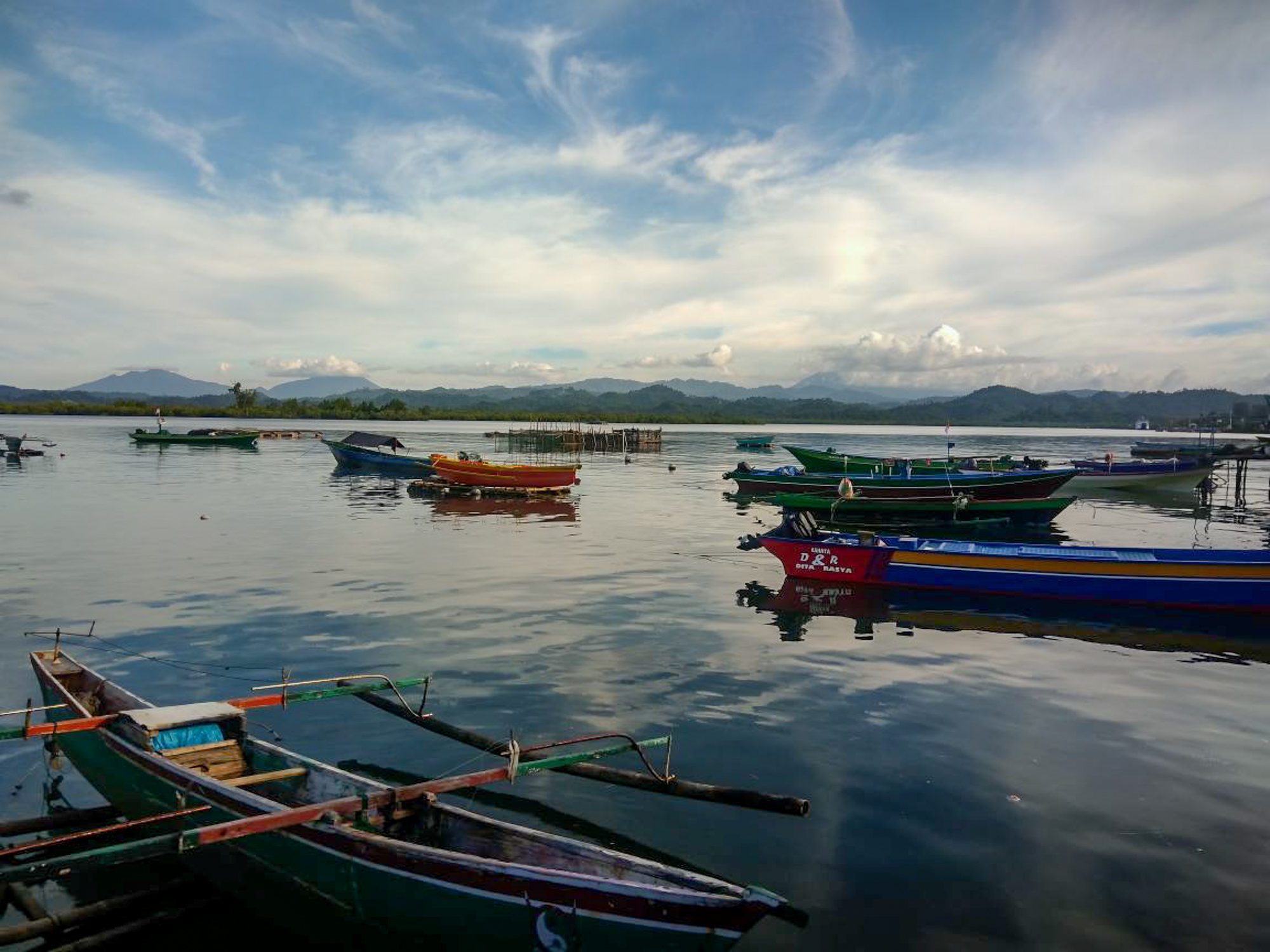
The view from Bulutui village | Photo: Perkumpulan Yapeka


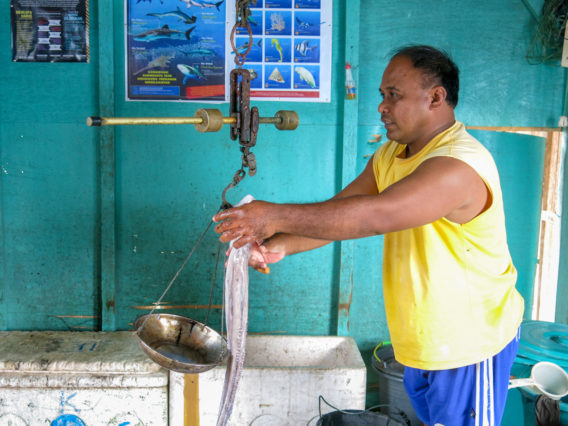
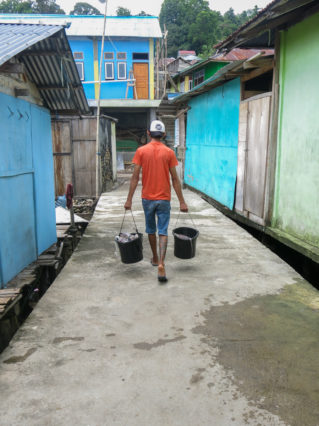
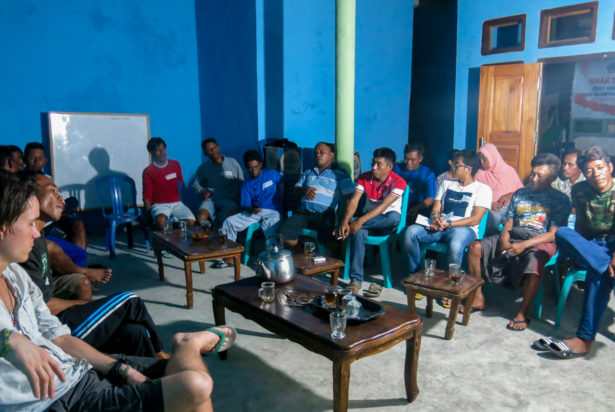
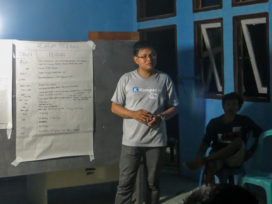
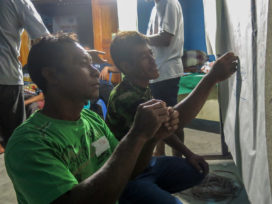
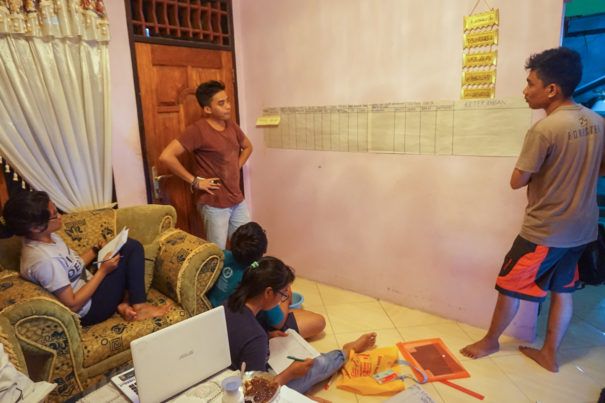
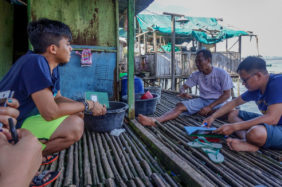
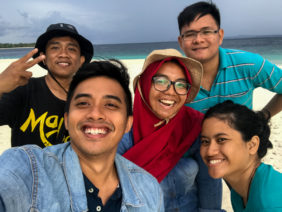
Inspiring. Keep up the good work! I’m proud of you, Lugas!